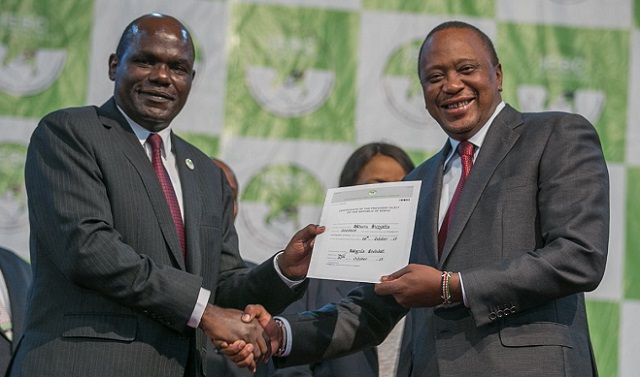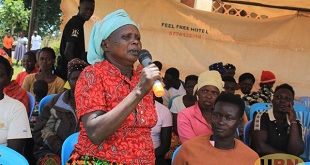
New Kenyatta term to open with country bitterly divided
– Fanfare –
No amount of military fanfare or the presence of around 20 heads of state for the swearing-in ceremony in a Nairobi stadium can mask the palpable unease hanging over the occasion, according to Rashid Abdi, analyst with the International Crisis Group (ICG).
“Kenyatta comes to office saddled with a deeply divided country, polarised along ethnic and regional lines, and unless he changes tack the likelihood is we will see serious crisis,” said Abdi.
“He has to reach out to Odinga and discuss the way forward”, with the opposition leader’s supporters railing at what they term a “dictatorship” which must be met with civil disobedience.
“This crisis has highlighted the growing gulf between the elite and the ordinary people,” said Abdi.
Odinga, 72, denied the presidency for a third time, has vowed to see the installation of a “third republic” — following independence from Britain in 1963 and a new constitution adopted in 2010.
– Turn the page –
Some observers maintain the current political crisis has only deepened existing social, ethnic and geographic divisions in the country of around 48 million people.
In areas loyal to Odinga, an ethnic Luo, the country’s fourth-largest grouping, there is a sense of having been ground down and discriminated against since independence, not least in relation to Kenyatta’s Kikuyu group, the largest and which has given Kenya three of its four presidents.
Abdi warns a gulf has clearly emerged and it widening between the political elite and normal citizens.
“People are completely fed up with the drawn-out war of attrition of our electoral politics and they want to see the country turn a page,” said Abdi.
“It is a sentiment I recognise and I hear every day. The government and opposition are increasingly disconnected from the people’s reality.”
That reality, for many, is deep political disconnection and, in the slums, a life which involves surviving on barely a dollar a day.
 The Independent Uganda: You get the Truth we Pay the Price
The Independent Uganda: You get the Truth we Pay the Price



